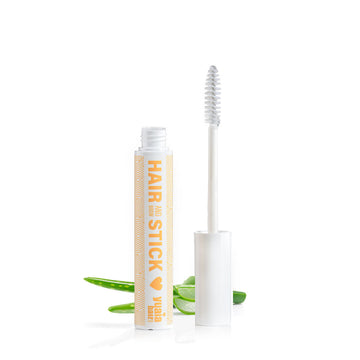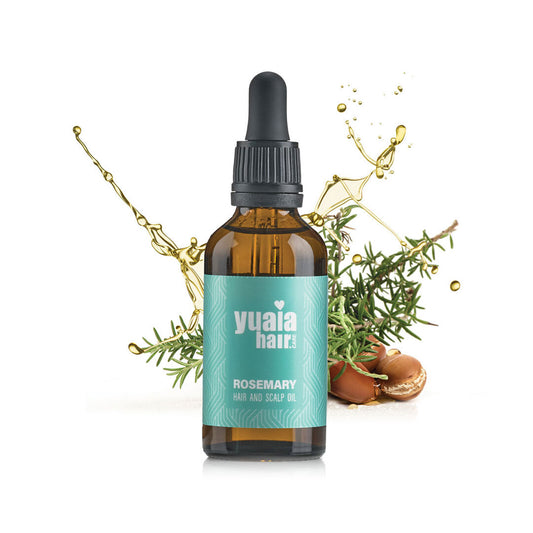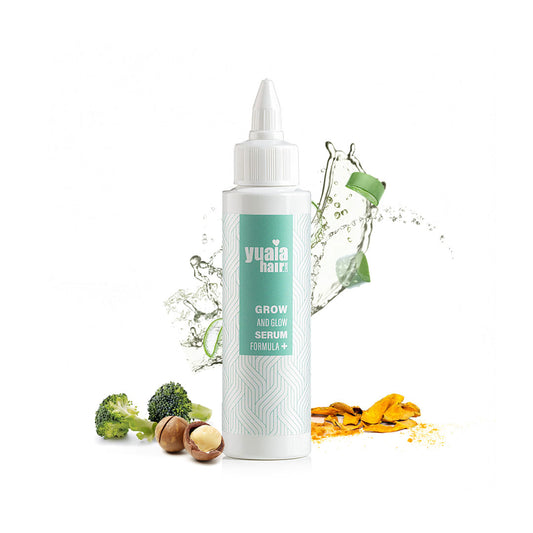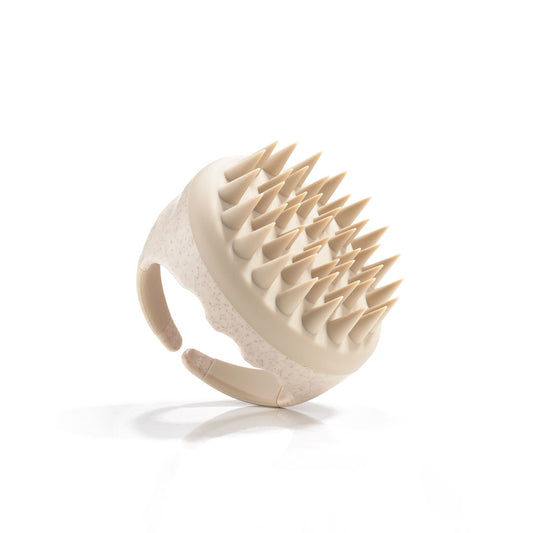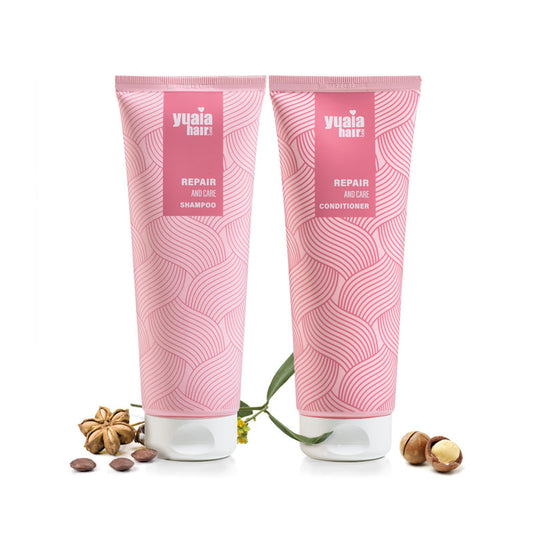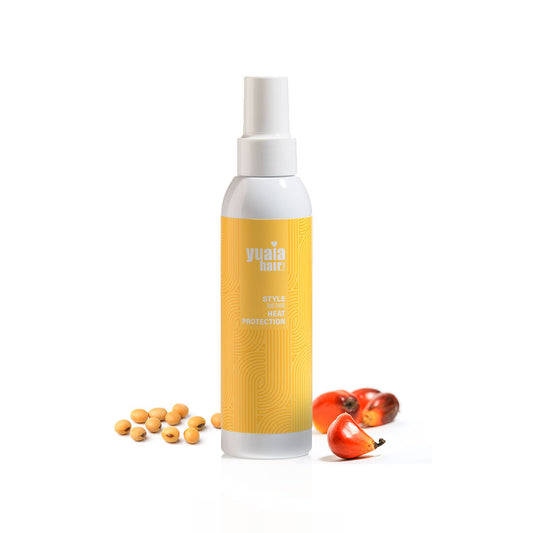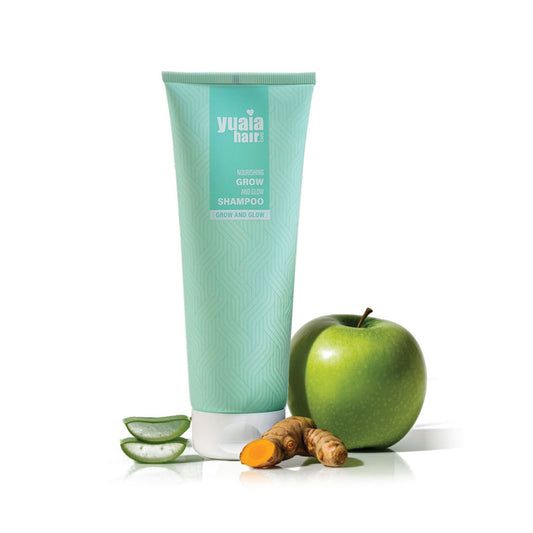
Common causes of scalp inflammation
Scalp inflammation is a widespread issue that can stem from various conditions. The most common causes include:
-
Seborrheic dermatitis, which typically presents as greasy, yellowish, and flaky patches, often accompanied by itching and irritation.
-
Psoriasis, a chronic autoimmune skin disorder that causes thickened, scaly, and inflamed areas on the scalp.
-
Folliculitis, an infection of the hair follicles leading to tenderness, redness, and small pimple-like bumps.
-
Allergic reactions, which may result from the use of specific hair products, perfumes, or dyes—especially with frequent or excessive use.
-
Fungal infections, such as ringworm, which can cause itching, flaking, and localized hair loss.
Identifying the exact cause of the inflammation is essential in order to choose the most appropriate and effective treatment.
Can inflammation cause hair loss?
Scalp inflammation can indeed contribute to hair loss, particularly when it affects the hair follicles over time. Persistent inflammation can disrupt the normal hair growth cycle, weakening the follicles and potentially leading to shedding or thinning hair. Conditions like folliculitis or psoriasis not only irritate the skin but can also create an environment where hair strands struggle to grow or remain anchored. In severe or prolonged cases, scarring may occur, which can result in permanent hair loss if not addressed early. Recognizing the signs and addressing inflammation promptly is key to protecting the hair's natural growth pattern.
Natural treatment approaches
Natural treatment methods are a popular choice for those who want to care for their hair without using chemicals. These methods often rely on ingredients from nature and focus on restoring hair health in a gentle and effective way.
Essential oils
Several essential oils have been noted for their anti-inflammatory and antimicrobial properties and are often used in natural scalp care routines due to their healing potential.
Tea tree oil is particularly effective due to its ability to combat fungi and bacteria, making it especially useful in treating dandruff and minor scalp infections.
Rosemary oil helps improve blood circulation, which can support healing and reduce irritation, and it is also thought to help with hair growth.
Peppermint oil offers a soothing, cooling effect that can relieve itching and inflammation, which is especially beneficial for individuals experiencing scalp tenderness or tightness.
In addition to these, lavender oil is known for its calming scent and its potential to reduce microbial activity on the scalp, while eucalyptus oil can contribute to clearing clogged follicles.
These oils should always be diluted with carrier oils such as coconut or jojoba oil before being applied to the scalp to prevent skin irritation. For best results, a small amount of the diluted oil blend can be gently massaged into the scalp, left on for 15–30 minutes, and then rinsed thoroughly with a mild shampoo. Repeating this treatment once or twice a week can help maintain a calm, balanced scalp environment.
Home treatments
Whether you're dealing with an itchy scalp, a dry scalp or a flaky scalp — or maybe multiple of those at once — there are several gentle and natural home remedies that can provide relief. These options are often easy to incorporate into your routine and can support the scalp's healing process effectively.
Apple cider vinegar rinse
Apple cider vinegar, known for its balancing pH properties, can be diluted with water and used as a scalp rinse to reduce irritation, remove buildup, and alleviate flaking. This simple remedy helps to restore the natural acidity of the scalp, discouraging the growth of harmful microorganisms. To use, mix one part apple cider vinegar with two parts water, apply it to the scalp after shampooing, let it sit for a few minutes, and rinse thoroughly.
Aloe vera treatment
Aloe vera gel applied directly to the scalp has calming and moisturizing effects, and its anti-inflammatory compounds can help reduce redness and tenderness. For best results, use fresh aloe vera or pure, unperfumed gel. Gently massage the gel into the scalp and leave it on for at least 20 minutes before rinsing with lukewarm water.
Scalp massages
Incorporating regular gentle scalp massages during these treatments can also improve blood flow and promote healing. Use fingertips to massage the scalp in circular motions for a few minutes daily. These natural remedies, when used consistently, can help support a healthier scalp and reduce the severity of inflammatory episodes.
Dietary considerations
What we consume has a direct impact on scalp health. An anti-inflammatory diet can be a valuable part of managing and preventing scalp inflammation, particularly for those prone to chronic flare-ups. Diets rich in omega-3 fatty acids, such as those found in flaxseed, walnuts, and fatty fish, help combat systemic inflammation. Hydration plays a critical role, and drinking sufficient water aids in flushing out toxins that may contribute to scalp issues.
Preventive measures to avoid scalp inflammation
Maintaining a healthy scalp is not only about treating inflammation when it occurs but also about adopting habits that reduce the risk of flare-ups. A proactive approach can support a balanced scalp environment and help prevent recurring irritation.
Hair care practices
Gentle, consistent care is key to preventing scalp inflammation and maintaining a healthy scalp environment in the long term. Choosing sulfate-free shampoos and conditioners helps avoid drying out the scalp, as harsh surfactants can strip away natural oils that protect and moisturize the skin. These gentler products also support the scalp’s microbiome, which plays a crucial role in regulating inflammation.
Washing the hair regularly but not excessively keeps oil levels balanced without over-cleansing or causing dryness. Depending on individual scalp needs and hair type, washing two to three times per week is often sufficient. It's also important to use lukewarm water rather than hot water, which can exacerbate dryness and irritation.
Avoiding heat styling tools and chemical treatments also reduces the risk of irritation. Excessive use of blow dryers, straighteners, or curling irons can cause heat damage, while hair dyes, relaxers, and bleaches can introduce harsh chemicals that inflame the scalp.
Allowing the hair to air dry when possible and using heat protectant sprays when styling are small adjustments that can significantly protect the scalp. Additionally, gently brushing the hair with a soft-bristled brush can help distribute natural oils and improve scalp circulation without causing microabrasions.
Lifestyle factors
Stress management plays a major role in scalp health. High stress levels can exacerbate inflammatory responses in the body. Additionally, ensuring adequate sleep and maintaining a consistent routine support the body’s natural repair mechanisms.
Product selection
Being mindful of the products used on the scalp is vital. Opt for hypoallergenic and fragrance-free products, especially if the scalp is sensitive. Always conduct a patch test when trying new products to avoid triggering an allergic response.
When to seek professional help
While natural remedies can be effective, some cases of scalp inflammation require medical evaluation. Whether you're dealing with an itchy scalp, a dry scalp or a flaky scalp, there are times when the condition may not improve with home care alone. If symptoms persist for several weeks, worsen over time, or lead to significant hair thinning or open sores, consulting a dermatologist is recommended. Early diagnosis can prevent complications and allow for targeted treatment.
Long-term relief through consistent care
Scalp inflammation is a manageable condition when approached with care, consistency, and the right information. By incorporating natural treatments, adopting preventive habits, and remaining attentive to changes in the scalp’s condition, it is possible to achieve lasting relief and support long-term scalp health.
Frequently Asked Questions
What are the most common symptoms of scalp inflammation?
The most common symptoms include redness, itching, flaking, tenderness, burning sensations, and sometimes small sores or bumps on the scalp. Severity can vary depending on the underlying cause.
Can scalp inflammation be prevented?
Yes, scalp inflammation can often be prevented by maintaining a gentle hair care routine, avoiding harsh chemicals and heat styling, using sulfate-free products, and managing stress. Regular scalp hygiene and choosing hypoallergenic products also help reduce risk.
Are natural remedies effective for treating scalp inflammation?
Natural remedies such as diluted essential oils, aloe vera gel, apple cider vinegar rinses, and regular scalp massages can be effective for mild to moderate scalp inflammation. However, persistent or severe cases may require medical attention.
When should I see a doctor about scalp inflammation?
You should consult a dermatologist if symptoms persist for several weeks, worsen over time, cause significant hair thinning, or result in open sores. Early intervention can prevent complications and permanent hair loss.
Can diet affect scalp inflammation?
Yes, a diet rich in anti-inflammatory foods such as omega-3 fatty acids, fruits, and vegetables can help reduce inflammation. Staying hydrated and avoiding excessive processed foods may also benefit scalp health.
 2-4 day UK delivery
2-4 day UK delivery
 25.000+ satisfied customers
25.000+ satisfied customers
 Satisfaction Guarantee
Satisfaction Guarantee

















